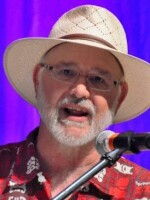
Ginger Ramirez was going through tough times, a few years ago. The 33 year old and her children live in Northwest Springfield, Zone 1, which has the city’s highest rate of poverty: “Oh absolutely, there was no hope. I felt like I was deteriorating, that I was falling apart, and my whole world was crashing. I wasn’t able to work anymore because of child care expenses. I was living off donating plasma every week, making $70.00 a week. That was my income to raise children and make a living.”
For Ginger Ramirez, that was then, this is now. In February 2017, Ramirez learned she was eligible for programming and support services from The Northwest Project. Began in 2016, the Northwest Project is a 5 year, $1.3 million grant to pilot poverty reduction strategies in Northwest Springfield. The NWP is led by the Drew Lewis Foundation, Missouri State University, and Drury University.
In Ginger Ramirez, the NWP found a willing, eager and able participant: “Going into the NWP, working closely with them, I was determined to get out of poverty” said Ramirez. “ I wanted a better life for me, my kids, for my family, everything.”
Funding for The Northwest project comes from The Community Foundation of the Ozarks; The Musgrave Foundation; and The Stanley and Elaine Ball Foundation, managed by Central Trust.

Friday 27 April, at the Springfield Poverty: Community Report Conference, in North Springfield, The NWP released its year 2 update to over 200 people attending the conference. Drew Lewis Foundation Chair, Amy Blansit, opened the program: “Really what the report said is we’re not wasting our time. We’re not wasting our money. The numbers show we are moving the needle” says Blansit. “ It costs a lot of money and it takes a lot of time, but to show that in 2 years with increased income and debt reduction strategies, The NWP changed the income potential in our families close to $1.2 million, it shows what that effort can do in the long run to pay off for our community.”
The NWP 2 year report shows 55 persons have participated in 8 cohorts of the program, representing over 200 family and household members. Average income has increased about $450.00 a month per household participating in the project. The employment rate has doubled since the program began, and credit scores continue to rise.
NWP educational classes, community dinners and other activities are held at The Fairbanks in Grant Beach, the Robberson Neighborhood, The Heart of the west Side, and Woodland Heights.
NWP Program Manager Kristina Wilmoth says The NWP model focuses on the national Circles, program: “We take the families in 6-12 groups once a week for about 3 months. We address topics that are common barriers: Things like budgets, relationships, healthy parenting.” Wilmoth says the weekly education also includes help with “transportation and housing, job training, resolution of legal issues, childcare, taxes and earned income. After 3 months of that,” Wilmoth says “They go through a graduation so we can celebrate what we’ve accomplished so far. So we go through a graduation, but we continue weekly education through what we call Maintenance Period, for up to 2 years and then some.”

Drew Lewis Executive Director Amy Blansit suggests just getting started in The NWP takes a lot of courage, because the first step is “Self-Identification as a person or family in need”. Blansit says: “For the families that are ideal for the program, there’s so much pride involved in saying I can’t take care of my family, I’m not sufficient right now and I’m scared for what that means for my kids. That’s a lot of pride to say, I need help.”
Ginger Ramirez agrees with Amy Blansit, she says it does take a lot of courage: “Going in there, it was hard to open up, and it took a while to open up. Walking in to let them know I needed help, going by myself, took a lot.” said Ramirez. “I felt very low and that I didn’t matter, and my life was a mess, but eventually, you learn they are there to help you, not to hurt you. You realize they are there to come together to make a community and help you through the struggles.”
Through The NWP, Ginger Ramirez has found a full time job and childcare. She has a savings and checking account set up, and now has reliable transportation with a car acquired through the Help Give Hope program.
Ramirez says The NWP helps her retain her dignity in hard times: “You actually feel like somebody, after the project. There’s a light at the end of the tunnel. There’s something I can look forward to every single day now, and that’s what The Northwest Project does. When I first started,” Ramirez said, “I felt like nobody, because I had nothing. But once I went through Circles and the Northwest Project, I felt like somebody again. I felt like I was important, and…Iam.”
Persons or families eligible for participation in The Northwest Project must be at or below the 200% Federal Poverty Level; must be employed or employable; and have a high school diploma or its equivalent, or be able to complete it within 6 months after entering the program.
For the full 2-year report on The Northwest Project: www.cfozarks.org/northwest
For information on how to participate in The Northwest Project, email: thefairbanksinfo@gmail.com





